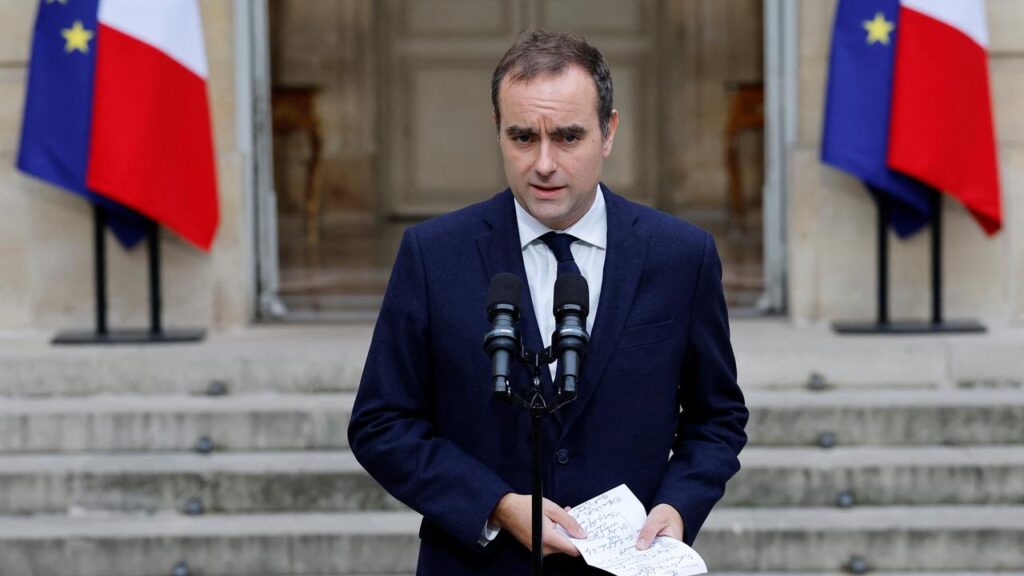France’s Macron reappoints Lecornu as prime minister
Elizabeth Pineau |

French President Emmanuel Macron has named Sebastien Lecornu as prime minister, reappointing him after he quit the job earlier this week, hoping the loyalist can draw enough support from a deeply divided parliament to pass a 2026 budget.
In naming Lecornu, Macron, 47, risks the wrath of his political rivals, who have argued that the best way out of the country’s deepest political crisis in decades was for Macron to either hold snap parliamentary elections or resign.
Lecornu’s immediate task will be to deliver a budget to parliament by the end of Monday.
“I accept – out of duty – the mission entrusted to me by the President of the Republic to do everything possible to provide France with a budget by the end of the year and to address the daily life issues of our fellow citizens,” Lecornu wrote on social media platform X.
“We must put an end to this political crisis that exasperates the French people and to this instability that is harmful to France’s image and its interests.”
Macron earlier convened a meeting of mainstream party leaders to rally support around his choice. Leftist leaders expressed dismay Macron would not be picking a prime minister from their ranks, their indignant response suggesting his future government might be as fragile as those that preceded it.
Another collapsed government would raise the likelihood of Macron calling a snap election, a scenario seen as benefiting the far right the most.
“We’re not looking for parliament to be dissolved, but nor are we afraid,” Socialist Party leader Olivier Faure told reporters as he left the meeting.
France’s political turmoil, which has dented growth and spooked financial markets, was in large part triggered by Macron’s decision in 2024 to hold a legislative election, a gamble that delivered a hung parliament split between three ideologically opposed blocs.
The country’s push to get its finances in order, requiring budget cuts or tax hikes that no party can agree on, has only deepened the malaise. So, too, has manoeuvring by political leaders seeking to succeed Macron in the 2027 presidential election.
If the National Assembly cannot find common ground on a budget in the time given, emergency legislation may be needed to keep the country running next year on a roll-over budget.
Macron shut out Marine Le Pen’s far-right National Rally (RN) and the hard left France Unbowed (LFI) from the meeting of party chiefs.
RN resident Jordan Bardella said the president’s strategy was about avoiding a legislative election rather than defending the interests of French people.
“The RN is honoured not to have been invited. We are not for sale to those around Macron,” Bardella wrote on X.
The country’s central bank chief, Francois Villeroy de Galhau, forecast on Friday that the current political uncertainty would cost the economy 0.2 percentage points of gross domestic product. Business sentiment was suffering but the economy was broadly fine, he said.
“Uncertainty is … the number one enemy of growth,” Villeroy told RTL radio.
Fraught budget negotiations in 2025 and 2024 as France seeks to rein in its public finances and tame a gaping budget deficit have cost Macron three prime ministers in less than 12 months.
Central to the most recent budget negotiations have been the left’s desire to repeal Macron’s 2023 pension reforms that lifted the retirement age, and tax the wealthy more heavily.
Those demands have been hard to square with the conservatives, whose support Macron also needs to pass a budget.
Reuters